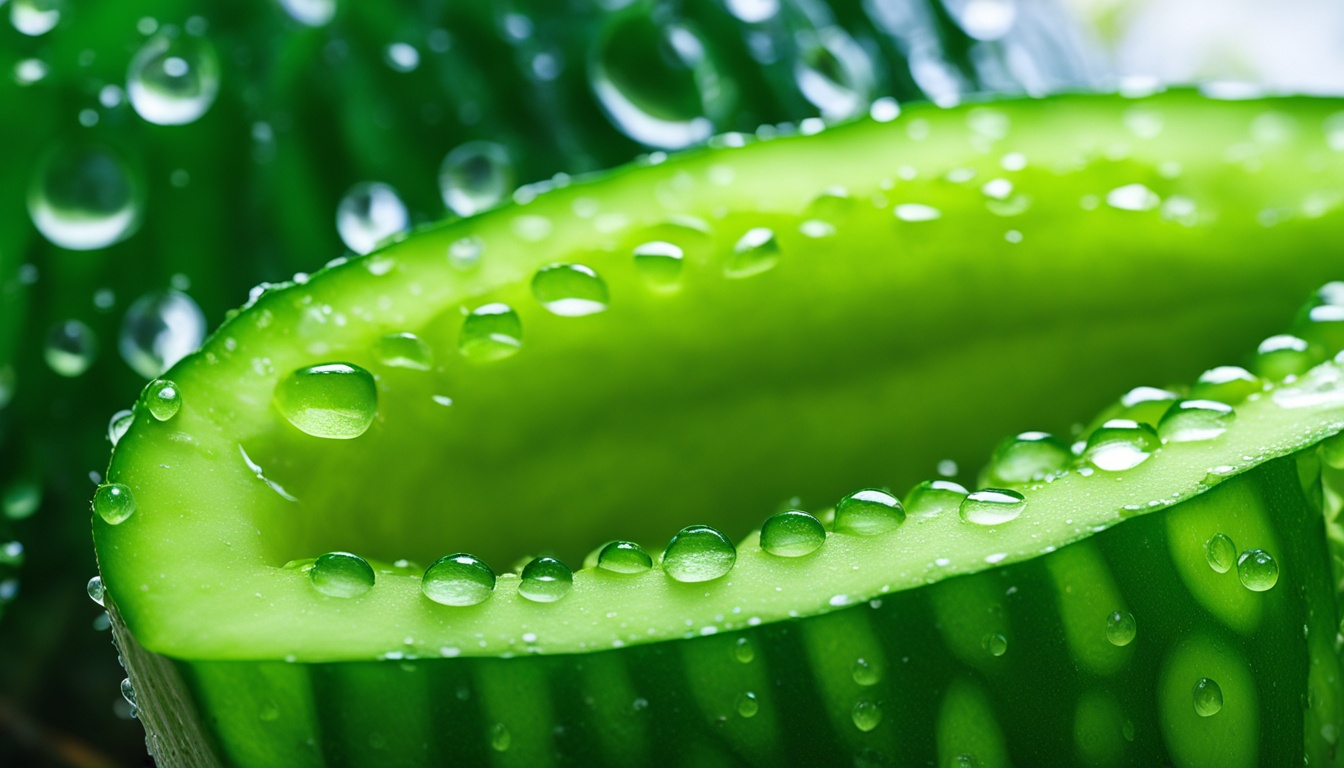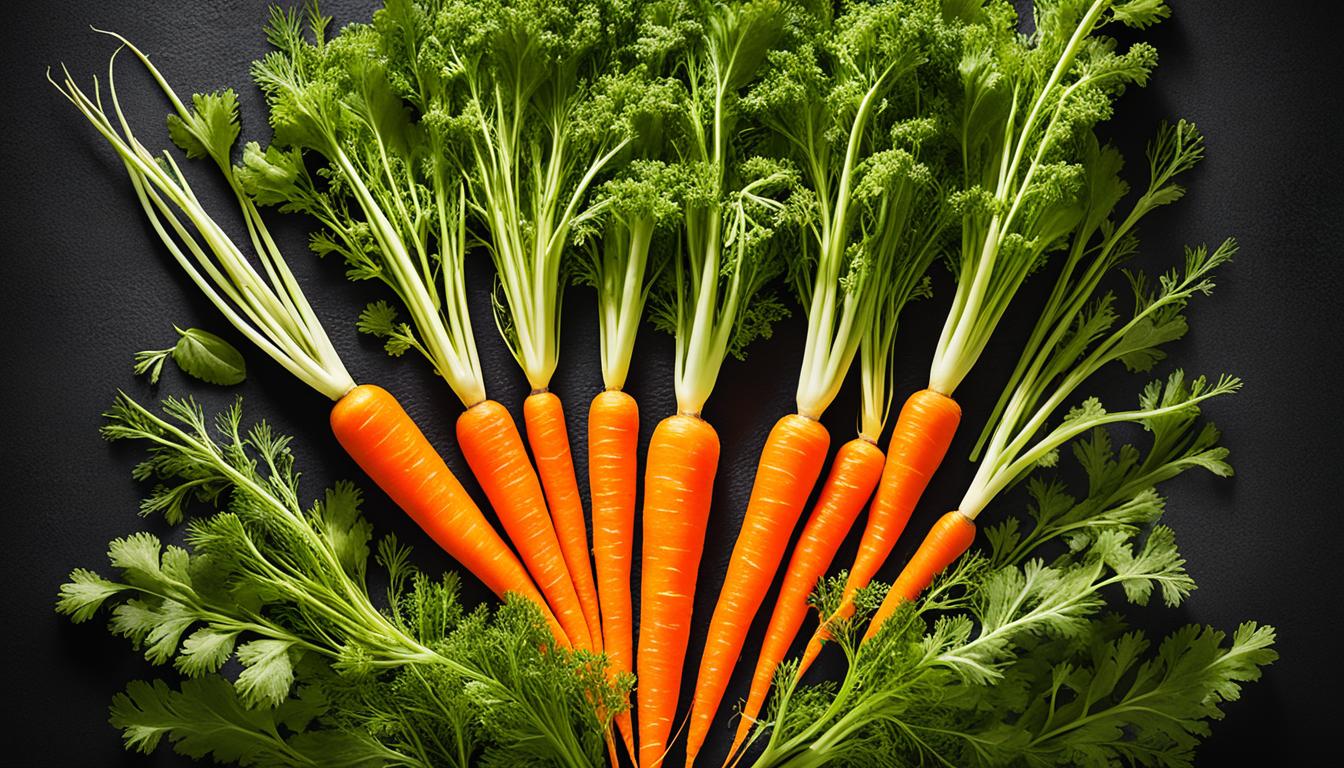A half-cup of raw or roasted pumpkin seeds gives you a remarkable 92% of the magnesium you need each day. These seeds, also called pepitas, are truly a powerhouse of nutrients. They’re more than just a snack; they’re a superfood.
Pumpkin seeds also offer a lot of iron. Just a quarter-cup meets over 20% of your daily iron needs. They are full of protein, vitamin A, and fiber too. That makes them an excellent healthy snack.
Pumpkin seeds are not done impressing yet. They’re packed with B vitamins, and vitamins C, D, E, and K. Studies even show they might help fight cancer. They could lower cholesterol levels too. Pumpkin seeds are valuable and are now a kitchen staple in many U.S. homes.
Key Takeaways
- Pumpkin seeds are a nutritional powerhouse, providing 92% of the RDA for magnesium in just a half-cup serving.
- They are an excellent source of iron, with a quarter-cup containing over 20% of the daily requirement.
- Pumpkin seeds are loaded with protein, vitamin A, and dietary fiber, making them a healthy and delicious snack option.
- These versatile seeds are a rich source of essential vitamins and minerals, including B vitamins, vitamin C, D, E, and K.
- Pumpkin seeds have been linked to potential cancer-fighting properties and can help reduce cholesterol levels.
Pumpkin Seeds: A Super Nutritious Snack
Pumpkin seeds, or pepitas, are full of nutrients that your body loves. They are a great source of protein, fiber, and healthy fats. For anyone who wants to boost their well-being, they make a perfect snack.
Packed with Protein, Fiber, and Healthy Fats
An ounce of roasted pumpkin seed kernels is packed with good things. It has protein, fiber, and lots of vitamins and minerals. Plus, these seeds have unsaturated fats like omega-3s, which are great for you.
Rich in Essential Vitamins and Minerals
Pumpkin seeds are like a nutrient-dense superfood. They are brimming with important vitamins and minerals. For example, they offer a lot of magnesium, copper, manganese, and zinc. These are vital for your health and wellness.
Potential Cancer-Fighting Properties
There’s some new thinking that pumpkin seeds might help fight cancer. Studies in labs show they could slow down certain cancer cells, like those in breast and prostate cancer. The seeds are rich in antioxidants, which might be why they have this effect.
Varieties of Pumpkin Seeds
Pumpkin seeds are known as pepitas and come in many forms. Each type brings unique flavors and textures. You can find them raw, shelled, or roasted and salted. This makes pumpkin seeds a great addition to meals.
Raw Pumpkin Seeds (Pepitas)
Many enjoy roasted and salted pumpkin seeds. But, raw pepitas are also tasty and healthy. They have a light, nutty taste. You can add them to salads, soups, or eat them as snacks. They’re very versatile.
Roasted and Salted Pumpkin Seeds
The roasted and salted pumpkin seeds are a favorite. Also known as pepitas, they’re crunchy and savory. This variety is roasted with a little oil and salt. They are perfect for snacking or as toppings in dishes.
Health Benefits of Pumpkin Seeds
Pumpkin seeds, or pepitas, are super tasty and full of essential nutrients. They offer many health perks. They’re a top-notch source of magnesium and have a lot of protein and omega-3s. This makes them a standout in the health food world.
Excellent Source of Magnesium
In just a quarter-cup, pumpkin seeds give you 92% of your daily magnesium. This mineral is key in keeping blood pressure in check and heart disease at bay. It also helps keep your bones strong and your blood sugar steady.
High in Protein
Protein is abundant in pumpkin seeds too, with over 20% of your daily need in a quarter-cup. They’re a great choice for vegetarians, vegans, or anyone into natural protein sources. Mixing them into your diet can boost your protein intake in a healthy way.
Rich in Omega-3s
Moreover, pumpkin seeds shine as a source of omega-3 fatty acids. These fats are key for brain health and lower the chance of chronic diseases. They’ve been linked to less inflammation and better heart health.
Antioxidant Properties
Pumpkin seeds are packed with antioxidants. These include flavonoids and phenolic acids that defend against cell damage. They offer benefits like reducing body inflammation. Adding to their power, they have vitamin E and carotenoids. These boost their ability to fight harmful free radicals and promote wellness.
pumpkin seeds: A Versatile Ingredient
Pumpkin seeds are also called pepitas. They are very versatile and can be used in many dishes. They add crunch to salads and veggies, or give a healthy boost to snacks and baked goods.
Use in Salads and Vegetable Dishes
Toss pumpkin seeds on salads for a crunchy, nutty flavor. They’re great instead of croutons. They also top soups and roasted veggies well. The variety of uses for pumpkin seeds in healthy meals is endless.
Add to Trail Mixes and Snacks
In snacks like trail mixes, pumpkin seeds are perfect. They’re crunchy and nutty, fitting sweet or salty snacks. More brands are adding them to their foods as people get more health-conscious.
Incorporate into Baked Goods
Pumpkin seeds shine in baked goods, beyond salads and snacks. They can go in muffins and biscotti, adding flavor and nutrients. You can find many recipes online for baked treats with pumpkin seeds.
Roasting Pumpkin Seeds at Home
Pumpkin seeds, also known as pepitas, make a delicious and healthy snack. You can easily roast them at home. Whether it’s seeds from a pumpkin you’ve carved or bought separately, homemade roasted pumpkin seeds are simple to make.
Cleaning and Preparing the Seeds
First, remove the seeds from the pumpkin. Wash them in cool water to get rid of any leftover bits. Then, dry them well with a paper towel or clean cloth.
After drying, mix the seeds with a little olive oil. Use enough to barely coat them. This step gives them a great crunch when they bake.
Seasoning and Flavoring Options
Now, it’s time to season your pumpkin seed seasonings. Try kosher salt for a classic taste. Or, get creative with spices like garlic powder, cayenne, or a mix of Mediterranean herbs.
Put the seasoned seeds on a baking sheet in a single layer. Bake them at 350°F (177°C) for 30 to 45 minutes. Stir them every 5 minutes for even cooking. Watch carefully towards the end to avoid burning.
When the seeds are as crispy as you like, take them out of the oven. Let them cool a bit before eating. They’ll be a tasty, crunchy treat. Enjoy them by themselves or add to your favorite dishes.
Buying and Storing Pumpkin Seeds
Pumpkin seeds, or pepitas, are easy to find in stores. You can get them raw, roasted, salted, or unsalted. Many options are available at the NutsinBulk online store.
Didn’t get fresh pumpkin seeds from carving? No worries. Places like Trader Joe’s offer pre-packaged roasted pepitas. The key is to pick pumpkin seeds that are fresh and high-quality for the best taste and nutrition.
Proper Storage Techniques
Keeping your pumpkin seeds fresh is all about where you keep them. They can last 3-4 years if you store them right. It’s best to keep them in the fridge. This keeps them cool and away from moisture, which stops them from going bad.
First, make sure your pumpkin seeds are clean and dry. Washing them in cool water gets rid of any leftover bits. Use a paper towel to dry them for a few weeks in a cool, airy place. Then, move them to a sealed container or envelope and store in the fridge until you’re ready to enjoy them.
By storing them the correct way, pumpkin seeds can last for a long time. This means you can use them in cooking, baking or just as a snack. Keeping them fresh guarantees they maintain their flavor and nutrients.
Nutritional Value of Pumpkin Seeds
Pumpkin seeds are a powerhouse of nutrition. They are rich in essential vitamins, minerals, and macronutrients. The first source highlights their high protein, Vitamin A, and fiber content. They also have plenty of B vitamins, Vitamin C, D, E, and K.
Another source dives into the specifics of pumpkin seed nutrients. For instance, a 1/4 cup of these seeds has 217 calories, 18 grams of fat, 9 grams of protein, and 6 grams of carbs. This size also brings you key minerals like magnesium, zinc, and iron. Pumpkin seeds top up your magnesium needs by 56% daily.
A serving of shell-free pumpkin seeds (28 grams) gives you about 160 calories. Most of these calories come from fats and proteins. You also get 3g of carbs, 8.6g of protein, 14g of fats, and 1.7g of fiber. This is stacked with important vitamins and minerals too.
Overall, pumpkin seeds make a great snack full of nutrients. You can eat them by themselves or mix them in with other foods. No matter how you eat them, you’ll enjoy their great pumpkin seed nutrition facts and health benefits.
Pumpkin Seed Recipes
Pumpkin seeds, also known as pepitas, are great in many recipes. You can use them in trail mixes, pestos, or brittles. They add a nutty flavor and a crunchy texture to your food.
Roasted Pumpkin Seed Trail Mix
Make a roasted pumpkin seed trail mix for a great snack. First, clean the seeds and coat them in olive oil. Roast them till they’re golden and crispy. Then, mix them with dried fruits, nuts, and a bit of sea salt for a tasty treat.
Pumpkin Seed Pesto
Give your meals a boost with pumpkin seed pesto. Blend pumpkin seeds, basil, garlic, and Parmesan with olive oil. This pesto goes well with pasta or on bread. It’s a nutritious and flavorful addition to your dish.
Pumpkin Seed Brittle
Make some pumpkin seed brittle for a fun snack. Mix caramel and pumpkin seeds, then let it harden. Break it into pieces for a snack that’s sweet, salty, and crunchy.
Pumpkin Seeds in Traditional Cuisines
Pumpkin seeds are known as pepitas in Spanish. They are a key part of recipes worldwide. They are especially important in Mexican and Native American cooking.
Mexican Cuisine
In Mexico, pumpkin seeds in Mexican cuisine have been loved for ages. They add a rich, nutty taste to food. You can find them in many famous Mexican meals, like pipián sauces and pepián mole.
The Aztecs and Mayans prized pumpkin seeds for their good nutrition and meaning. Today, they are still used in Mexican food. They make dishes more tasty and interesting.
Native American Traditions
In Native American cultures, pumpkin seeds in Native American cuisine are vital. Many tribes, from the Southwest to the Northeast, rely on them. They are used in many food types and even in ceremonies.
Natives roast and grind pumpkin seeds. They also make them into soups, stews, and bread. This shows how important these seeds are to their traditions.
Using pumpkin seeds in Mexican cuisine and pumpkin seeds in Native American cuisine helps keep their food history alive. It is a way to honor and enjoy their amazing culinary traditions.
Eco-Friendly and Sustainable Pumpkin Seeds
Today, people care more about how their food impacts the planet. They are looking for sustainable pumpkin seeds and eco-friendly pumpkin seeds. Brands like EnviroKidz are at the forefront, making pumpkin seeds in eco-friendly ways.
EnviroKidz is well-known for its eco-friendly pumpkin seeds. They have shown a strong commitment to the environment. They have given over $3 million to charities. Their aim is to give away $2 million in food every year. Also, all their factories produce zero waste. This proves their effort to be environmentally friendly.
EnviroKidz has also focused on saving energy and water in their factories. This action reduces the harm they do to the planet. This means their sustainable pumpkin seeds are made the right way. They meet the need for food that is kind to the environment.
Every year, the world grows over 2 billion pounds of pumpkins. We need to watch our waste. Sadly, about 1.3 billion pounds of pumpkins end up in the trash in the U.S. Brands like EnviroKidz help fight this waste. By choosing their pumpkin seeds, people help reduce food waste.
The call for eco-friendly pumpkin seeds and sustainable pumpkin seeds is growing. It’s great to see companies like EnviroKidz making a difference. They lead the way in green practices and give back to the community. They are an example for the whole pumpkin seed industry to follow. They show us we can choose a better, more sustainable future.
Conclusion
Pumpkin seeds are full of nutrients and good for your health. They have protein, fiber, and necessary vitamins. You can eat them as snacks or add them to meals like salads and soups. Pumpkin seeds taste nutty and are crunchy, making them fun to eat.
Pumpkin seeds are great for snacks or making your meals tastier. They help with digestion, sleep, and boosting your immune system. You can easily add them to anything you eat because they are so nutritious.
Pumpkin seeds show how amazing natural foods are. They are a tasty and healthy snack all year. If you’re working on being healthier or just want flavorful food, choose pumpkin seeds. They’re a smart option for anyone.
FAQ
What are the nutritional benefits of pumpkin seeds?
In what forms can pumpkin seeds be purchased?
How can pumpkin seeds be used in cooking and baking?
How can pumpkin seeds be roasted at home?
Where can pumpkin seeds be purchased?
What is the nutritional profile of pumpkin seeds?
Are there any traditional recipes or uses for pumpkin seeds?
Are pumpkin seeds an eco-friendly and sustainable food choice?
Source Links
- https://nutsinbulk.com/pumpkin-seeds.html
- https://www.skinnykitchen.com/recipes/delicious-and-nutritious-roasted-pumpkin-seeds/
- https://www.webmd.com/diet/health-benefits-pumpkin-seeds
- https://www.healthline.com/nutrition/11-benefits-of-pumpkin-seeds
- https://www.edenbrothers.com/collections/pumpkin_seeds
- https://www.gurneys.com/category/pumpkin-seed
- https://www.harrisseeds.com/collections/pumpkin
- https://www.health.com/nutrition/pumpkin-seeds-benefits
- https://www.fooddive.com/news/pumpkin-seeds-shift-beyond-seasonal-as-their-functional-qualities-shine/593902/
- https://vegnews.com/vegan-guides/benefits-pumpkin-seeds
- https://www.inspiredtaste.net/35546/easy-roasted-pumpkin-seeds-recipe/
- https://www.themediterraneandish.com/how-to-roast-pumpkin-seeds/
- https://www.jessicagavin.com/how-to-roast-pumpkin-seeds/
- https://welivedhappilyeverafter.com/how-to-harvest-save-seeds-from-your-pumpkins-store-bought-or-home-grown-to-plant-in-next-years-garden/
- https://www.gardeningknowhow.com/edible/vegetables/pumpkin/saving-pumpkin-seeds-how-to-store-pumpkin-seed-for-planting.htm
- https://thistledownsfarm.com/how-to-save-pumpkin-seeds-for-re-planting-next-year/
- https://www.todaysdietitian.com/newarchives/0323p16.shtml
- https://www.medicalnewstoday.com/articles/303864
- https://naturespath.com/products/pumpkin-seed-plus-flax-granola-np-us
- https://www.goingzerowaste.com/blog/how-to-make-easy-roasted-pumpkin-seeds/
- https://www.ncbi.nlm.nih.gov/pmc/articles/PMC9182978/
- https://www.ncbi.nlm.nih.gov/pmc/articles/PMC10030350/




